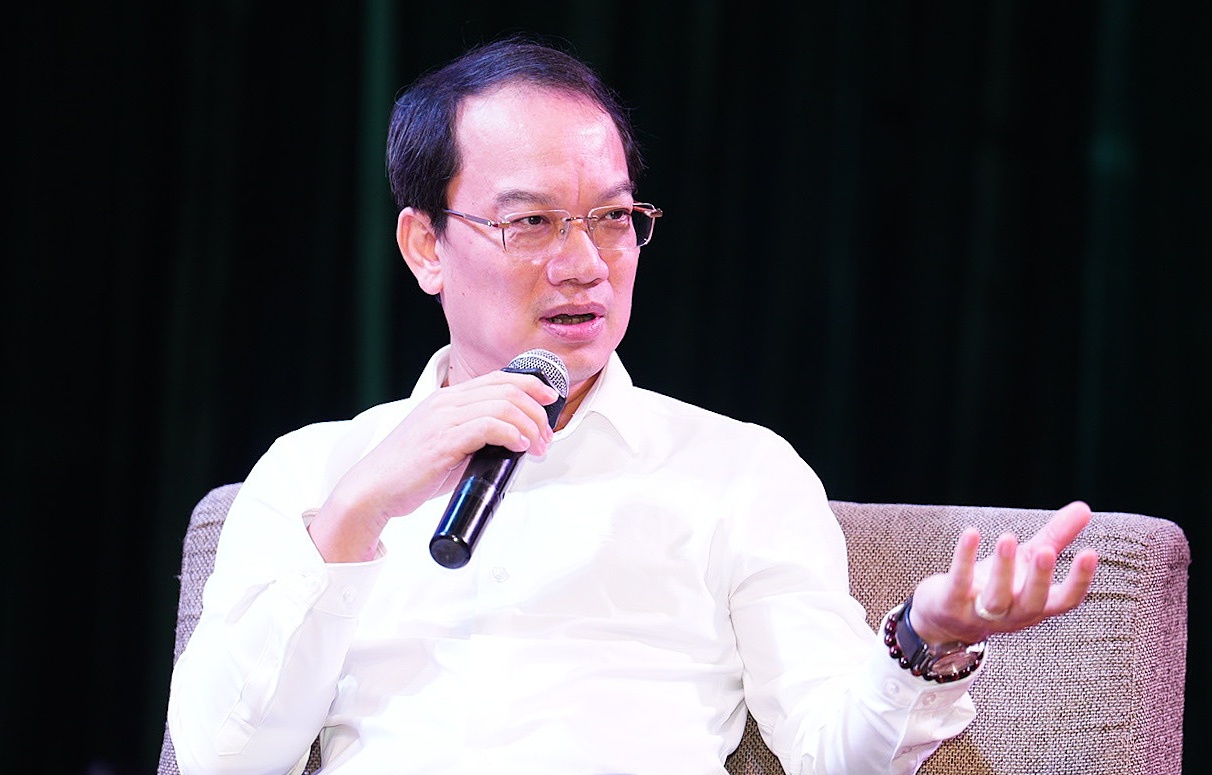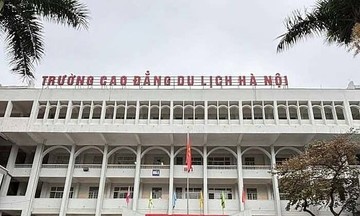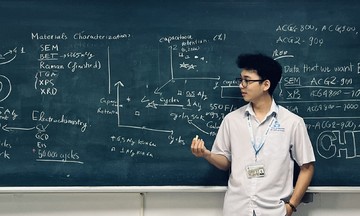Layoffs in the Vietnamese banking sector have raised concerns among students, but experts emphasize that digital skills offer significant opportunities. A report from nearly 30 commercial banks in Vietnam revealed a reduction of over 3,400 employees in the first 6 months of this year, bringing the total workforce to nearly 280,000. This marks the sharpest decrease compared to the same period in many years.
Le Hoang Anh, a first-year banking student in Hanoi, expressed her apprehension: "I can't help but worry. Given the current wave of layoffs, I wonder if my job opportunities four years from now will significantly decrease."
During a seminar on "Human Resource Development in the AI Era" on 8/10, experts clarified that the workforce reduction primarily stems from banks implementing digital transformation. They stressed that despite these shifts, banks still face a shortage of personnel, and students graduating in the next four years will have numerous opportunities if they acquire essential digital skills.
Doctor Nguyen Thi Thu Ha, Director of the Staff Training School at Vietnam Bank for Agriculture and Rural Development (Agribank), cited a survey indicating that approximately 56% of routine, non-automated jobs are expected to disappear. Conversely, 65% of new jobs related to technology applications are projected to emerge. "Banking sector personnel are only redundant in roles that do not apply AI, digital transformation, or adaptive thinking; there's a significant shortage in areas requiring data analysis and information technology expertise," Ms. Ha stated.
Doctor Phan Thanh Duc, Head of the Faculty of Information Technology and Digital Economics at the Banking Academy, echoed this sentiment. He highlighted Vietnam's rapidly growing demand for technology personnel, with an annual shortage of 150,000 to 200,000, where AI specialists represent the most critical gap.
"Within the banking sector, AI personnel are increasingly vital in areas such as data governance, risk modeling, fraud detection, and digital customer management, yet these roles are severely understaffed," Mr. Duc explained. He noted that the banking industry began its digital transformation in 2021, with over 90% of transactions at many credit institutions now conducted through digital channels. The sector's vision for 2030 is a "smart ecosystem in the new era," integrating advanced technologies like AI, Blockchain, and Big Data. This transformation involves specific goals for digital platforms. Consequently, Mr. Duc views this as a significant opportunity for banking students who proactively develop AI application skills.
 |
Doctor Phan Thanh Duc moderated the seminar at the Banking Academy on 8/10. Photo: Banking Times |
Many universities offering finance and banking programs have already integrated AI into their curricula. For example, at the Banking Academy, first-year students study subjects like applied digital competence, management information systems, and data analysis. However, Mr. Duc cautioned that formal education alone is often insufficient, as curricula are designed for all students. "Students must cultivate a proactive, personalized learning path to enhance their digital capabilities and meet the specific demands of businesses," Mr. Duc advised. He suggested utilizing reputable online platforms such as: Coursera, Udemy, Great learning, or edX for learning AI and other technologies.
Ms. Nguyen Thi Thu Ha underscored that technology is no longer solely the domain of a bank's information technology center but a responsibility shared by all employees. "Applying AI is a skill that can be cultivated and practiced daily," Ms. Ha asserted. "Students need to develop skills that prompt them to consider how to automate tasks, improve productivity, and identify relevant AI tools for any given job."
Doctor Nguyen Cong Thuong, Deputy Director of the Data and Artificial Intelligence Division at Vietnam Joint Stock Commercial Bank for Industry and Trade (VietinBank), agreed. He stated that digital transformation necessitates personnel with deep foundational knowledge to "query" AI intelligently, transforming it into a powerful assistant rather than a mere information retrieval tool. He advised students to embrace lifelong learning, continuously updating and adapting to new technologies, given their constant evolution. "This is not just an advantage but a mandatory condition for personnel to survive and sustainably develop in the finance and banking sector," Mr. Thuong concluded.
Associate Professor Doctor Pham Thi Hoang Anh, Deputy Director of the Banking Academy, stressed that developing digital human resources requires a collaborative effort among the State Bank of Vietnam, training institutions, and businesses. "Innovation in curricula, teaching methods, and close cooperation between banks and training institutions are fundamental to building a banking workforce with a digital mindset, technological mastery, and flexible adaptability—key factors for Vietnam's banking sector to pioneer innovation and achieve sustainable development in the AI era," Ms. Hoang Anh affirmed.
Many banks are proactively enhancing their staff's digital capabilities through continuous training programs. For students, beyond academic and self-study, internships at businesses from their second or third year offer practical experience.
Duong Tam
banking sector | artificial intelligence - AI | Banking Academy | layoff wave











